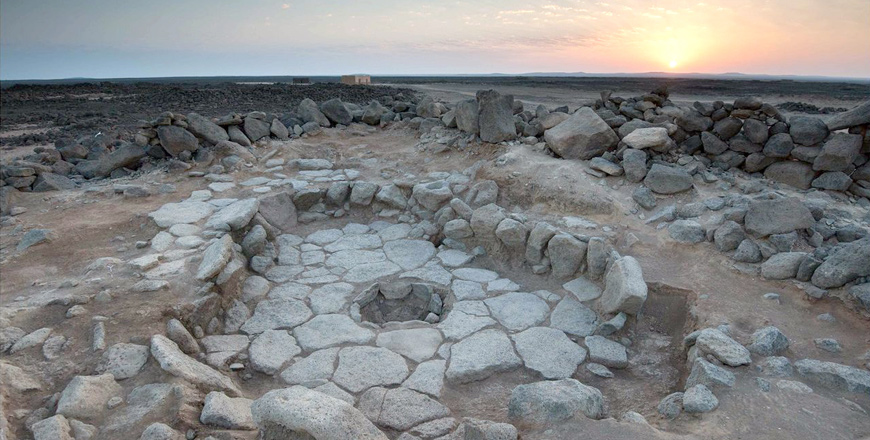AMMAN — The discovery of the oldest remains of bread in the world adds to Jordan’s reputation as a key contributor to civilisation, pundits said on Tuesday.
Research published in the US-based journal Proceedings of the National Academy of Sciences (PNAS) on July16 said that the finding is the earliest empirical evidence for the preparation of bread-like products by Natufian culture of hunter-gatherers, 4,000 years before the emergence of the agricultural way of life in the Neolithic Age.
The flatbread, likely unleavened and somewhat resembling pita bread, was fashioned from wild cereals such as barley, einkorn or oats, as well as tubers from an aquatic papyrus relative that had been ground into flour, according to the research.
The bread was found at "Shubayqa 1", which is dated to the early and late Natufian culture (from 12,600 to 9,600 BC). It is located in northeast Jordan, in an area known as the Black Desert, according to the research.
General Director of the Department of Antiquities Monther Jamhawi stressed that the discovery entails the “surprise” that bread- making dates back to a much older era than previously known.
Jamhawi said that the place has little ruins, such as remains of walls and chipped basalt stones.
"It is not about the site's components, but about the finding itself, which is a milestone in the drive of archaeological discoveries", Jamhawi told The Jordan Times on Tuesday.
Omar Al Ghul, an associate professor at Yarmouk University, said that in terms of importance, nobody can belittle such a finding because it adds to the story of mankind’s understanding of his environment, creatures, resources and geography.
“What was discovered supports the significance of findings that provide information about the daily life of prehistoric civilisations”, Ghul said, adding that such sites are no less important than globally renowned major sites, such as Petra and the pyramids of Egypt.
The professor said that inhabitants of Jordan have exercised the bread-making process in all its stages, including cultivation, harvesting, grinding and baking, for millennia, until around 1950, when they began buying bread from bakeries.
“The discovery reminds me of how our grand-and great-grand parents were independent and living a stable life by having a lifestyle that was based on productivity and self-sufficiency”, the professor added.
The discovery will also enhance Jordan in the world’s archaeological-themed tourism arena, Yousef Zreiqat, a tourism expert said.
Zreiqat called on concerned authorities to promote such sites to attract more archaeologists and scientific researchers, which will eventually help diversify the Jordanian tourism product.
